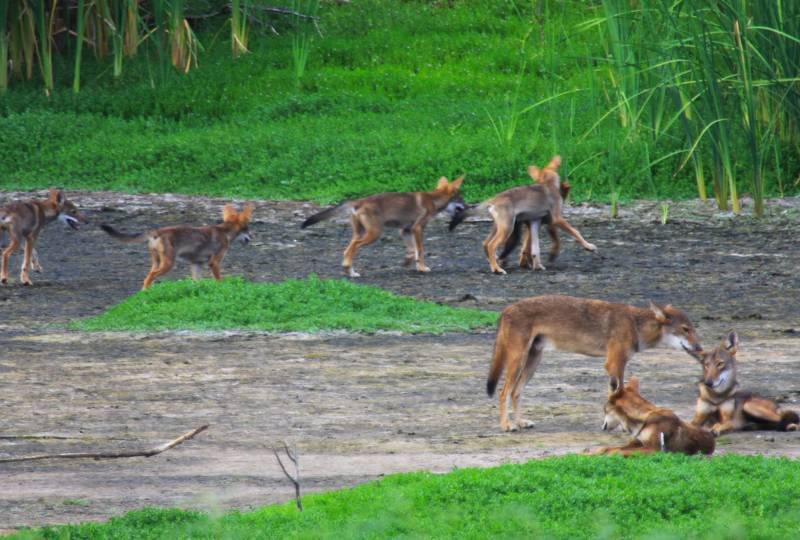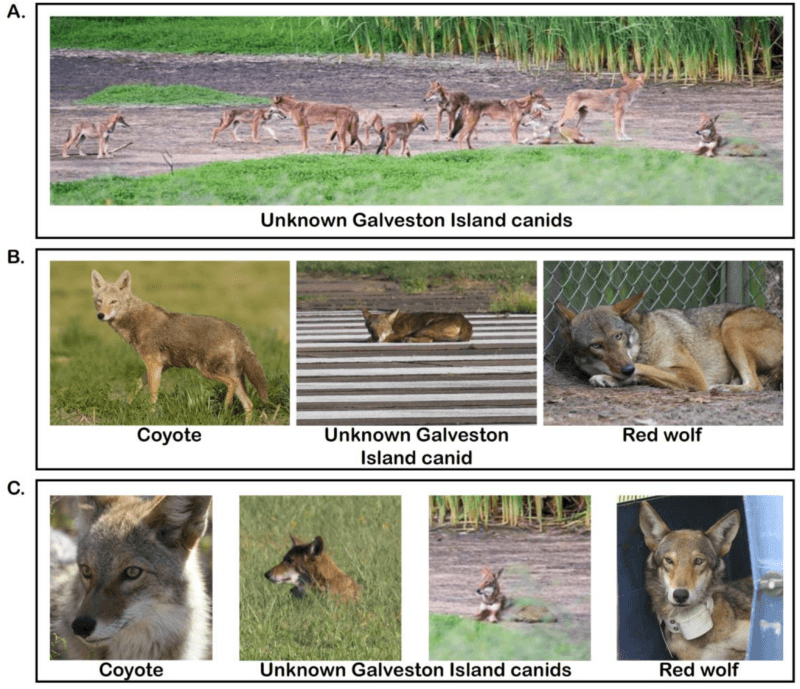Conservationists and biologists alike are optimistic that these findings could help revive what was once thought to be a lost species.

Ron WootenOften mistaken for coyote, these wild dogs possess the genes of a species of wolf thought to be extinct in the wild.
Red wolves were declared extinct in the wild in the 1980s, but a new discovery shows that their DNA persists in a roving pack of feral dogs on Galveston Island, Texas.
Red wolves were once native to a large stretch of the southeastern United States including Texas, Florida, and West Virginia. The red wolf is somewhere between a gray wolf and common coyote in size but features a trademark reddish tint on the ears, head, and legs.
They were placed on the endangered species list in 1967 when hunting, habitat loss, and cross-breeding quickly dwindled their numbers. Upon their extinction on the Gulf coast, people began to breed the red wolves in captivity, but only 40 were successfully bred as pure red wolf.
Of those, 14 went on to reproduce the current lineage of red wolf variety that exists in both captivity and in the wild. Once reintroduced to North Carolina in the late 80s, it seemed the red wolf would make a full recovery, but further impacts from humans brought their numbers back down to a 40 or below in the wild.
Now, their genes once thought to have been erased from canine genetic history, have been found in a pack of small-town Texas feral dogs when a local field biologist, Ron Wooten, made an astute observation.
Often the dogs are confused with the local coyote population, but Wooten ascertained minute differences between the pack and those local coyote populations. Plus, there had been reports of red wolf in the area, so he brought his findings to an ecologist and evolutionary biologist who runs the North American Canine Ancestry Project at Princeton University.
“They looked particularly interesting and I felt it was worth a second look,” study co-author Bridgett vonHoldt reported. Wooten subsequently sent DNA samples from dogs killed by cars and after extensive cross-examination between their genes and those of related species — coyote, gray wolf, eastern wolf, and captive red wolf — found that the feral pack had genes known only to exist in red wolves.

GeneseComparisons of the red wolf, coyote, and Galveston dogs.
“It’s incredibly rare to rediscover animals in a region where they were thought to be extinct, and it’s even more exciting to show that a piece of an endangered genome has been preserved in the wild,” Elizabeth Heppenheimer, a graduate student in vonHoldt’s lab, said.
The research, published in Genes, suggests then that this pack of Galveston, Texas dogs not only carries the genes of the red wolf, but also to have genes not present in any wild dog population. The Galveston dogs seem to be a genetic variant of red wolves and not just those bred in captivity, but those that once existed in the wild before they required forced breeding.
So while they may not be “pure” red wolf, the Galveston dogs could be used to restore lost aspects of the species’ genetic history.
The findings are optimistic as they show how resilient the DNA of the red wolf has been through generations of cross-breeding and endangerment alike. Further, similar DNA was found in canines in southwestern Louisiana.
“This unprecedented discovery opens new avenues for innovative conservation efforts, including the reintroduction of red wolf…to the current captive and experimental populations,” the study reported.
Next, check out how DNA testing is helping to thwart illegal ivory traders. Then, read about the enraging yet totally legal trophy hunting of a beloved wolf in Yellowstone National Park.




